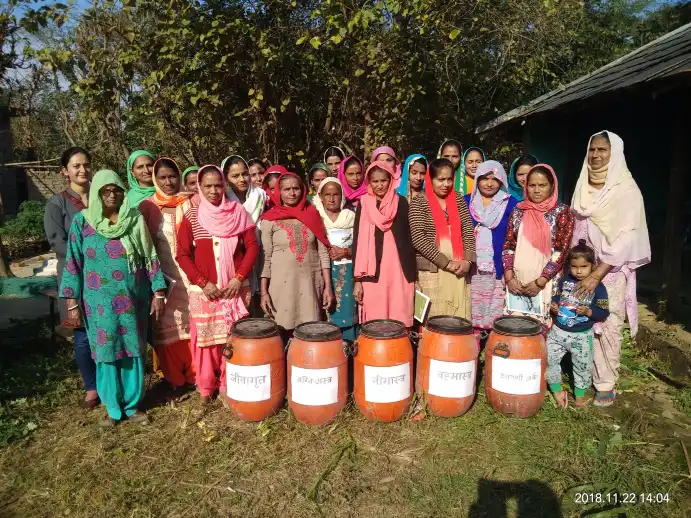Government strengthens rural economy through natural farming initiatives in State
2 min read
The State Government is making significant strides in strengthening the rural economy by promoting natural farming in the state. This ambitious initiative is aimed at reducing farming costs, increasing income of the farmers and ensuring sustainable productivity. The efforts are already showing positive results and motivating farmers to move away from chemical-based farming to eco-friendly practices that are beneficial for both living beings and the environment.
Under the vision of ‘Atmanirbhar Himachal,’ the state government aims to make farmers self-reliant in the coming times. As promised in its budgetary provision, the Government launched the Rajiv Gandhi Natural Farming Start-up Scheme in its third phase with an investment of Rs. 680 crore. This scheme not only promotes natural farming but helps creating employment opportunities aiming to boost incomes of the farmers. One of the key features is the priority purchase of natural farming products with the highest support prices for wheat and maize at Rs. 40 and Rs. 30 per kilogram respectively, the highest support price given in the country. The state has also set up a procurement limit of 20 quintals of grain from per family of a farmer practicing natural farming.
To further enhance market access for natural farming products, the government is forming 10 new Farmer-Producers Associations this year. These associations will help farmers market their produce more efficiently, ensuring better returns thus raising their source of income for a better living. Additionally the state has set the purchase price for cow’s milk at Rs. 45 per liter and buffalo’s milk at Rs. 55 per liter, providing an extra source of income for dairy farmers.
Himachal Pradesh has become a model state for natural farming, inspiring other states to adopt similar practices. The ‘Him-Unnati Yojana’ launched by the present state government is also making significant progress involving 50,000 farmers and establishing 2,600 agricultural groups. This scheme focuses on chemical-free production and marketing by adopting natural farming and promoting sustainable agriculture.
The number of farmer-horticulturists growing grains, fruits, and vegetables through natural farming are continuously increasing and the government is also working to improve the market system so as to ensure that farmers get better prices for their produce.
By focusing on sustainable, chemical-free agriculture, the state government is not only securing the future of its farmers but also setting an example for other states to follow. Through its comprehensive natural farming initiatives, the government is paving the way for a more prosperous, self-reliant and environmentally friendly future.






